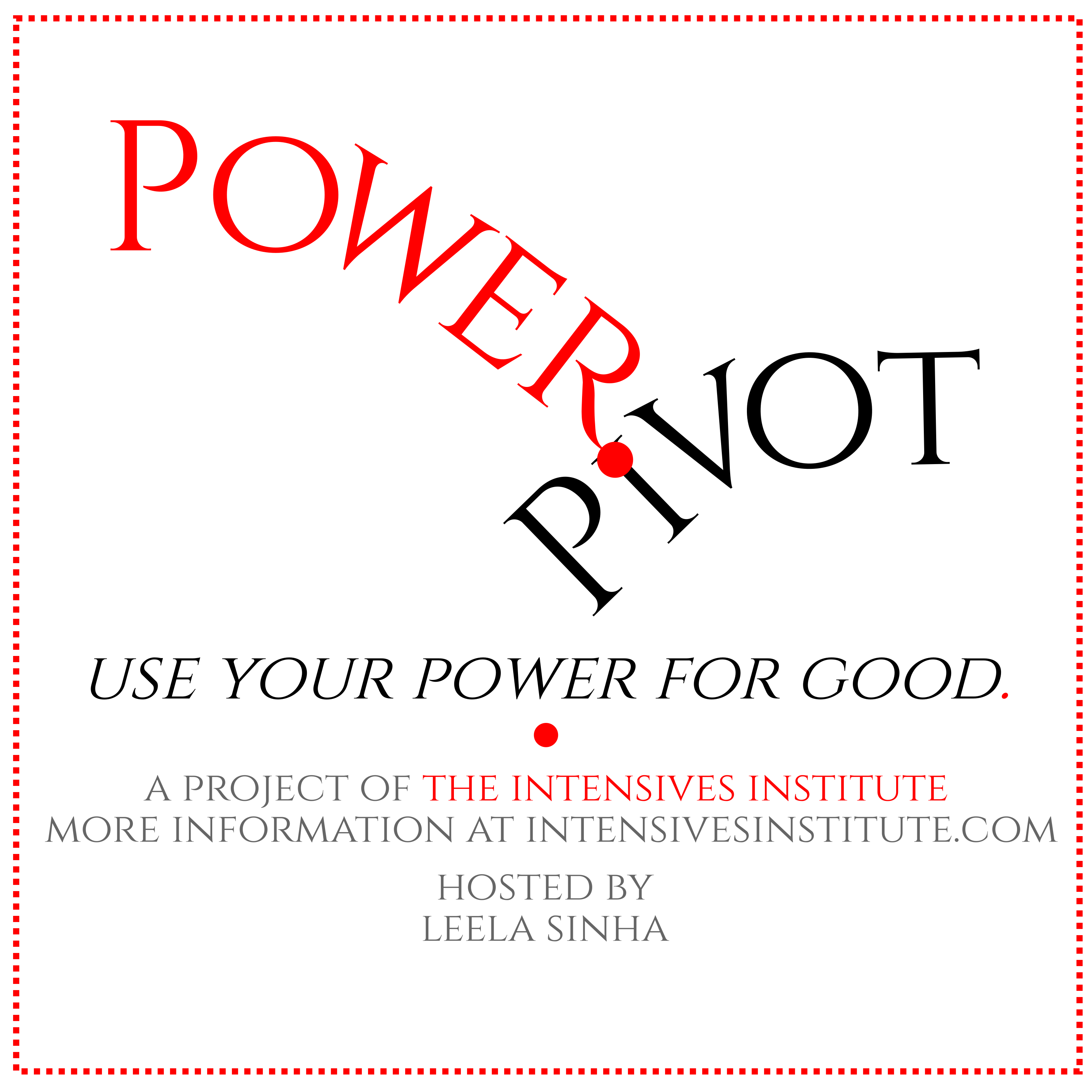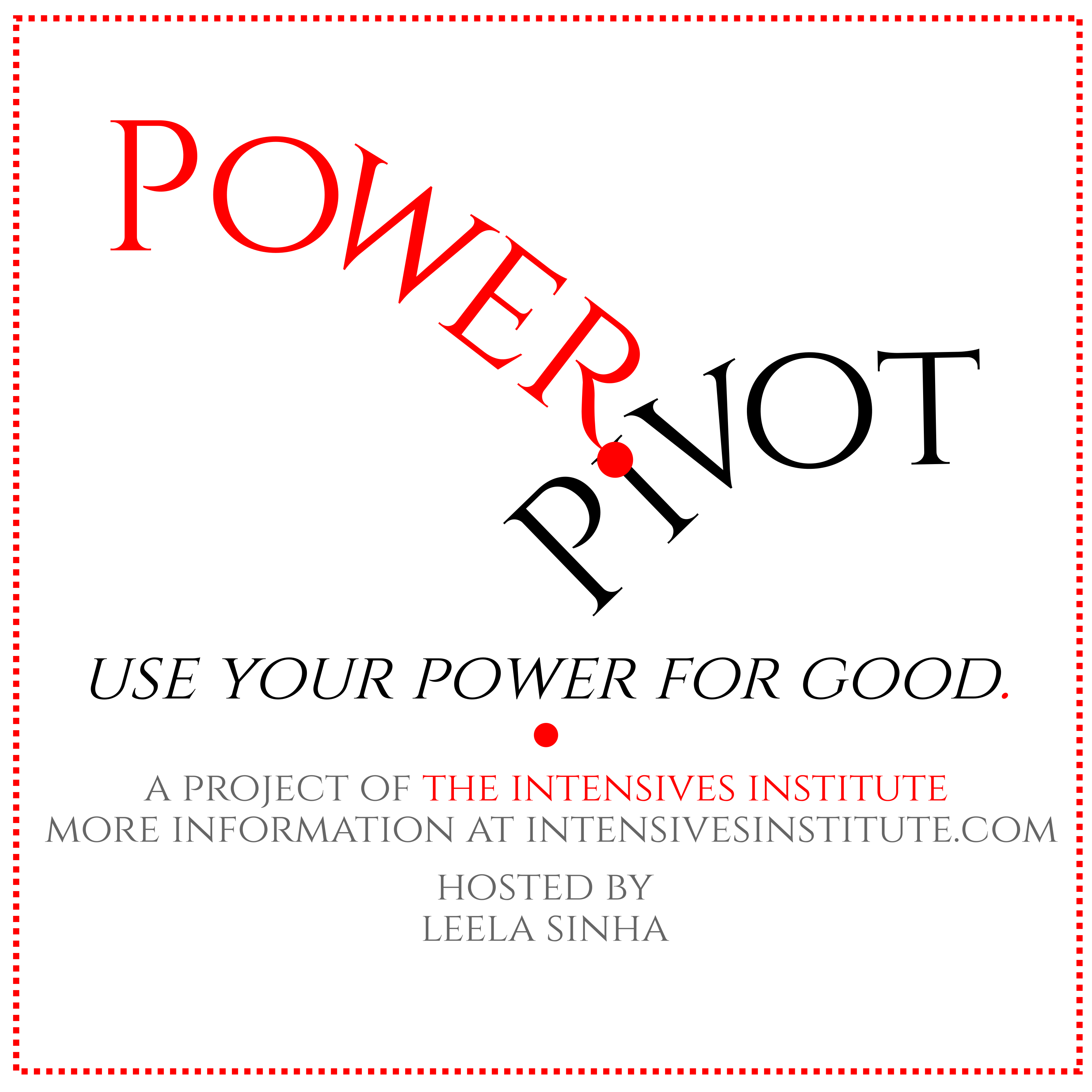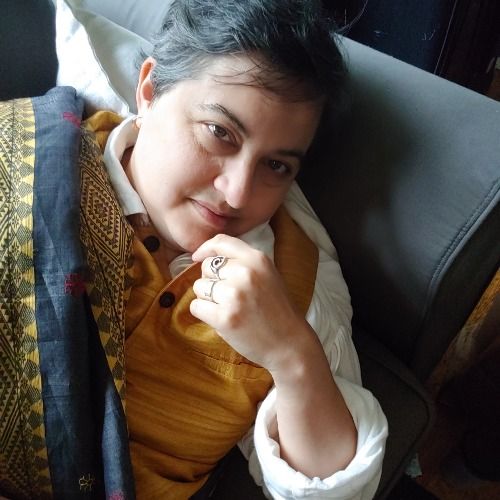Episode 82
the gift of a plant
"this culture, the one that holds the power around us is a culture that asks us to suffer. It invites, it expects, it valorizes suffering. It wants us- It tells us that if we aren't hurting, it doesn't count... But let's bring it back to pleasure. What is the tiny thing that still feels good?"
Is it the gift of giving, and the gift of receiving?
Here is a link to Leela's recent guest sermon at Northwest Inland Universalist Unitarian Community, which ze refers to in this episode:
Transcript and notes:
https://dev.intensivesinstitute.com/captivate-podcast/the-gift-of-a-plant
Recorded 26 February 2023.
Transcript
Hi, everyone. Thanks for tuning in.
I was writing my sermon today, if you're listening to this, it's probably available somewhere online. And if it is, we'll put a link in the show notes. I was writing my sermon today and thinking about pleasure, which is really at the heart of the heart of what I do. And every time I start to think about it, again, in specific focus and detail, I kind of fall down a rabbit hole.
So I'm writing this sermon, and I spent this whole chunk of time going deep into these ideas about pleasures and gift economies. And I had to pull it back. And I'm going to have to edit it significantly in order to bring it back into line with the length of sermon that is expected in my denomination. However, however, I wanted to bring you a little piece of some of the things I was thinking about, specifically, specifically, about gift economies, and pleasure and receiving as its own gift.
This is a little off topic, usually I try to tie it back into intensiveness a little more closely. But it is and it isn't. Because we intensives tend to be driven by pleasure, we tend to be driven by what works for us, by what enlivens us, by what catches our interest. That's where we go, that's where our energy goes. That's where our inspiration emerges. And when we do that, when we go into the places where our pleasure is deepest and richest, it changes everything.
But we live immersed in a world that does not want us to do that. Even if we've managed to create a bubble that's a little bit less grumpy about it. In general, the world that we've- I was gonna say the world that we've created. But I almost feel like we didn't participate in creating it as much as the expansives around us participated in creating it. But even that's not true. We also participated in creating it. So let's just say it's complicated.
It's complicated. And also, this culture, the one that holds the power around us is a culture that asks us to suffer. It invites, it expects, it valorizes suffering. It wants us- It tells us that if we aren't hurting, it doesn't count. No pain, no gain. But not just no pain, no gain, if you're exercising, which it turns out is actually not actually all that actually, anyway. It's not just when we're exercising, it's when we're doing anything.
There's this whole trope that like true love is sacrifice. And it doesn't end up making sense. There's this O. Henry story that will break your heart. It's called The Gift of the Magi or the Gifts of the Magi. And I will absolutely spoil it for you. There's this poor couple. And he has a watch that he's really proud of. And she has long hair that she's really proud of. And so they want to give each other a really nice gift for Christmas. So he sells his watch to buy her beautiful hair combs and she cuts off her hair and sells it to buy him a beautiful watch fob.
And I don't like the story in that it's heartbreaking. But I do like it in that it points out how ridiculous this idea of sacrifice is. It doesn't actually get us anywhere that we couldn't get somewhere else better. In this case, some good communication would have helped, too.
But pleasure. Let's go back to pleasure. Let's go back to a gift economy. So let's start. Years ago, I read a series of stories on the Internet. And when I say years ago, this was newsgroups-years ago, I read a series of stories on the Internet that were set in a utopian world with a true gift economy. And it really was a utopia and there was a reason for that. That set up the space that was necessary for all of the stories that were to come. And that doesn't mean everything was perfect, but everything was pretty damn good.
Systems were in place, people cooperated for the good of the whole. There was a kind of a robot/AI system in place that took care of a lot of the things that nobody really wanted to do. But also, even the most prominent figures in that world, occasionally took out their own garbage just to stay grounded, just to remember that they were creating trash. To remember that there were tasks like that that were being done. They were being done by a fairly sentient AI system, but they were still being done. And the AI system had not run amok and was not trying to kill anyone. So that was great.
Anyway, so there was this world. And it was the first time that I had ever encountered a true gift economy in concrete examples. I heard vaguely about gift economies up until that point, but I'd never really thought about what it would mean, to live in a gift economy. And this series of stories built that out, robustly.
So many times, these days, when I hear people talk about gift economies, in depth, what they're really talking about is a barter economy. "I'll give you this so that you will give me that." That's not a gift economy. And the beauty of gift economies is that it removes the transactional nature of interactions. For the most part. We're gonna get into the complicated part in a second because it removes the transactional nature, except that both giving and receiving are their own gifts. But it removes the idea, the expectation, that if I give you this, you will give me that.
That's barter. There's nothing wrong with barter. But it's not the same as a gift economy. And barter feels to me like weight. When I first started my business, I used to barter with people a lot. And I have mostly stopped, because it ends up feeling like a drag, like an obligation, like a, like an insistence, like a requirement. Like a demand. And I have a certain amount of what we call persistent demand for autonomy.
What is pathologized as pathological demand avoidance, and just listen to that phrase, like pathological demand avoidance? Demand avoidance is kind of natural. What kind of a system calls demand avoidance pathological? Anyway, Persistent Desire for Autonomy is the name that I prefer. And I think it makes perfect sense. I don't think it's pathological. But it does mean that when I get myself into a barter situation, I immediately feel some resistance.
I don't like feeling like I have to do a thing. And even if it's a thing I like to do, I would rather just spontaneously do it. A lot of intensives like our autonomy in the same way that I do.
So maybe this is more about intensives and expansives, than I realized when I started talking, but here we are, in this extremely transactional economy. And I have to say that California was even more like that than anywhere else I've been in that was very weird. I have since left California, and we are back to what I think of as more normal levels of transactional-ness in our everyday lives. And that feels better to me, it's a better cultural fit. That's part of why I left California.
But what I dream of, is a world more like that world that I read about all those years ago. Where we just do things because it pleases us to do them. We offer things because it pleases us to offer them. And the community and the society and the world that we are part of has enough people who are pleased to offer enough things that we all end up supporting everybody individually and ourselves together.
Maybe my perspective is warped because I spend so much time with people who are inclined to give generously just because we enjoy it. But I know people who love to grow food, who just who are so delighted to just spend time on and with the land. Speaking with it, asking it what it needs and wants. Giving it as much as they can of what it needs and wants, asking in return for what they need and want.
It's not really a barter, when it's the Earth. It's it's living in community together and the earth gives certain things and the person gives certain things, and it becomes mutually supportive. I know so many people who love to cook, who love to take what the Earth has given, the animals that have given themselves, the plants that have given themselves as kindly, as easily as possible. And turn it into food. Nourishing, delicious, beautiful food. And serve it. Share it with people who will enjoy it and who will be nourished by it.
I know so many people... I know so many people who like to build things and craft things and make things. People who like to build things out of wood. Ideally, wood that's been sustainably harvested. People who like to build things out of plaster or stone, taken as carefully and gently as possible from the earth. People for whom building and crafting are arts and not simply a means of survival. Often not a means of survival at all honestly. People who like to build things of cob- mud mixed with straw. People who like to think about new ways and invent new ways of doing old things, people who like to spin and knit and weave.
I know so many people who are nourished by doing those things, and who at the end of the day end up with a giant pile of stuff. Because the pleasure was in the making and or the pleasure is in the giving. So often they'll give it away. I know people who delight in pottery. People who delight specifically in baking. People who delight specifically in making clothes, knitting and sewing, intricate detailed crafting, decorating embroidery painting. People who really enjoy working in a market. Not a necessarily big supermarket but like working in a market where it's you and a table and a bunch of stuff and and people come by and they want to buy the stuff and talk to you.
And I know so many people who take pleasure in sitting and listening and talking and helping people untangle their brains or solve their problems. And when people stop loving those things, usually it is because it has gone from being a free gift to being an obligation and one that they have to do more than they really have capacity to do.
When we have to do more than we have capacity for we're in trouble.
And the demands of the world we live in right now have moved us to a place where that trouble is bubbling and rising. Have you ever been to a tar pit? Have you ever seen like an active tar pit? When I was a kid I visited La Brea Tar Pits- a very young kid. I visited La Brea Tar Pits and I was very interested in prehistoric life and animals and dinosaurs and stuff as as you do when you're a kid but I'm actually still interested honestly.
And the tar pits- because the tar is so thick, it's like boiling jam. It doesn't bubble up in one spot and it doesn't bubble as evenly as water. It's something in the middle it's it's this bubbling gloopy sound kind of all over the tar pit at once. As gases rise up from the earth to the surface.
It's a little weird and also it's such a perfect metaphor because it feels like we have been lured to the tar pit by the sheen of water on top, the sheen of more money, more security. As though that's how one gets security by having more stuff. Because that's how it feels under capitalism. That's what it feels like that we have to accumulate more stuff in order to be more secure. But as the pandemic has continued to teach us, there is no security in stuff if nothing else is working. And while money can stave off certain kinds of things, it cannot stave off everything.
But you know what keeps saving my life? And not just in this pandemic- is community. Community keeps saving my life. Over and over and over again. Community saves my life. And for that I am deeply, unspeakably grateful that when I read about this gift economy, it felt familiar, even though I lived in the world that we live in- not exactly the world we live in now, but it's close past cousin.
And I still need to make money and I still need to clothe myself and heat my house with gas that's sold to me. Because that's the particular circumstance of my life right now. But even then, even at the time I was heating my house with gas and wood, I was still buying clothes, I was still working somewhere. It felt familiar, something about it felt familiar, something about it felt right, even more right than the idealized version of capitalism that I had been raised with. It felt- it felt like a relief, it felt like a breath of fresh air.
So my invitation to you? Yes, as an intensive business owner, yes, as an intensive institutional leader. My invitation to you is to look around, and see where the world and especially intensiveness, is feeding an active non-transactional gift economy right this second around you? Where is that already happening?
This morning, one of my coaching colleagues posted that he had been feeling some discouragement about the world. And I said, Yeah, me too. I've had to get zoomed in really close. I've had to get "kid-lying-on-the-ground-staring-at-ants-close to keep going.
So rather than asking, What are we going to do to move the entire world toward a true gift economy, which would be great. But I don't think we're ready for that right this second. I'm asking you to get down kid-staring-at-ants-on-the-sidewalk-close to your life and see where it's already happening. Where are people already giving freely with no expectation of anything in return? Where are you already delighted to give even if you're tired? What is the tiny thing that still feels good?
Yesterday morning, I was trying to find a tiny thing that still felt good. So I took an olive jar-I eat a lot of olives. And I put some gravel in the bottom, some dirt on top of that. And I went out in the chilly, rainy Pacific Northwestern weather just in the backyard and I picked up a little tiny piece of moss.
Moss grows well in our backyard. And a couple of little plants that I don't even know what they are. But they were those little ground-covery spontaneously growing ones that tend to turn up first in garden beds. And it's just about time to think about what I want to have growing where, which means some of them are going to have to be removed. I don't have any objection to them existing. I just need that space specifically for something else, specifically. But they are spontaneously giving themselves to the world. They're just there.
So are the dandelions. Those I pulled up as completely as I could and dried the roots. A gift. Now I have dandelion root medicine. But I went outside and I pulled up just a couple of tiny little thumb-sized pieces of these plants that I don't know, can't identify. Just know they're there. A little prayer of gratitude, and a little tiny piece of moss with a little prayer of gratitude.
I took some chopsticks and I lowered them down into the dirt. And I put the lid on the jar, little bit of water, stuck it in the window. Within two hours, the wilty plants had unwilted, had stood up. Had started to establish themselves in their new environment.
I needed to get kids-staring-at-the-ants close. So I made a space that was so small, that I could see something so small as the gift of a plant friend growing up out of nothing.
Thanks for tuning in. I'll talk with you soon.


